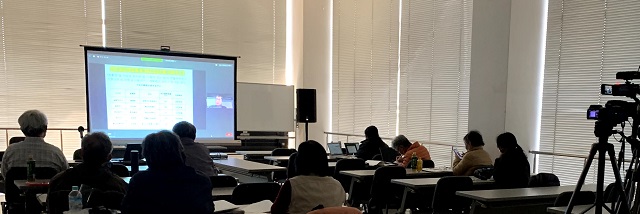Building a Network of Asian NGOs for ESD
Summary
Since its beginning, ESD-J has emphasized promoting ESD and partnerships with NGOs in Asia through building an Asian regional network. In 2006, ESD-J launched the Asia Good ESD Practice Project (AGEPP), a three-year project (2006-2008) aimed at sharing experiences of community-based ESD practices and bringing NGO’s together for their mutual learnings. Working with NGOs in six Asian countries, ESD-J compiled 43 case reports, which were made available in English and six Asian languages via a multilingual database. While implementing the AGEPP, ESD-J worked on advocacy activities to send messages to the global community on the need to strengthen NGOs’ roles and more attention to community views in the process of building sustainable communities. Following the AGEPP, ESD-J has been promoting a network of NGOs who could share, in their own words, experiences and challenges they faced in implementing ESD in their communities and learn from one another. Currently ESD-J is working on initiatives aimed at building the Asia NGO Network on ESD (ANNE) by 2014, the final year of the DESD.
ESD Characteristics
Asian communities have been saddled with the challenge of many sustainability issues that community people, especially women, children, the poor, small farmers, and indigenous peoples have to face. It is crucial towards sustainable development in Asia for empowering them to play an active role in building their communities. ESD in the context of community development is a process where local community people from diverse backgrounds learn from one another and create a new, better community with sustainability knowledge that can be created by integrating both modern scientific knowledge and indigenous practices. NGOs, in particular, play a big role in empowering and educating communities by tapping the innate strengths of different stakeholders in areas where UN and government agencies cannot reach.
Aims and Historical Background of ESD Activities
Since its foundation, ESD-J has focused on partnering with NGOs in Asia to build an international, especially Asian regional network. In the course of developing a network among Asian NGOs, the UN agencies, researchers, ODA-related staff as well as international organizations, ESD-J came to realize how important it was that NGOs in Asia share their experiences in implementing ESD and that the best way to promote ESD was to bring NGOs together so they could learn from each other. With this in mind, ESD-J implemented the Asia Good ESD Practice Project (AGEPP) from 2006 through 2008. By reviewing applications from NGOs in Asia, the project selected organizations from seven Asian countries. Thanks to the insights gained via the AGEPP, ESD-J is now working on initiatives aimed at building the Asia NGO Network on ESD (ANNE). The network will link NGOs in the region and enable them to work together in implementing projects.
Achievements
Forty-three case reports from the participating countries were collected through the AGEPP and published in English. These reports and a summary have been translated into six Asian languages and made available on the AGEPP’s multilingual website (www.agepp.net/). In the process of compiling case reports, the AGEPP participants discussed what ESD is really all about and the role of NGOs that they can play for implementing ESD in the local communities. They shared ideas on making communities sustainable while empowering local community people, especially women, children, the poor, small farmers, and indigenous peoples, and identified the roles NGOs in breaking through the obstacles blocking the way to sustainable development. Discussions among NGOs about their views and possible roles of NGOs on ESD in their own language resulted in their empowerment and willingness to participate in international discussions on ESD. The discussions through the AGEPP revealed how weak the presence of community development NGOs was in the UNDESD initiatives. Aware of the problem, the AGEPP participants worked as advocates for ESD at the international community such as the G8 Hokkaido Toyako Summit (2008), the World Conference on ESD (2009), the tenth meeting of the Conference of the Parties to the Convention on Biological Diversity (CBD COP10, 2010), the United Nations Conference on Sustainable Development (Rio+20, 2012), etc. Their advocacy efforts led to the forging of cooperative ties with the UN and other international organizations.
Future Perspective and Challenges
We, the AGEPP participants, have been moving forward with plans to establish the Asian NGO Network on ESD (ANNE) by 2014, the final year of the DESD, through a field visit on the AGEOO site of Indonesian NGO programs as well as strategic meetings in Tokyo and Bangkok. Rather than simply constructing a network for networking purpose we made a conscious decision to create substantive benefits by learning experiences of concrete projects on the ground. We are currently carrying out a project to develop educational modules for the NGO workers, based on the in-depth study of experiences gained through the micro-finance project targeting women and indigenous peoples in poor farming communities in India, using one of the AGEPP case reports. The biggest challenge we face now is securing sustainable funding needed to implement/continue substantive projects on the ground.



